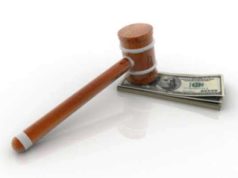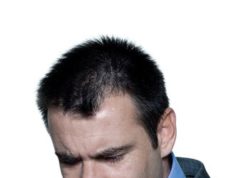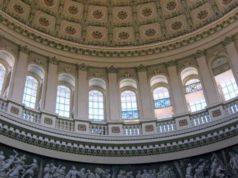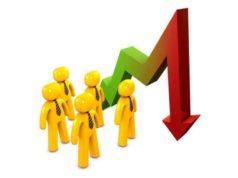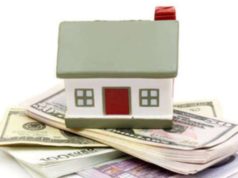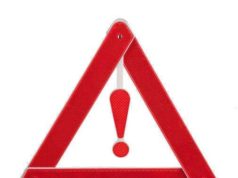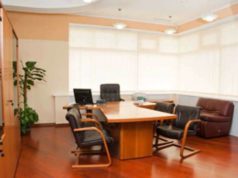
When an individual is forced to consider bankruptcy as a way to relieve debt, it is common to fear the long-term consequences of this alternative. When reviewing the information related to bankruptcy, he/she may begin to believe that filing for bankruptcy is an easy and effective way to address his/her ever-increasing financial debt.
While filing for bankruptcy is necessary for many individuals, it is only recommended if an individual has explored all of their other options, despite the notion that the consequences of bankruptcy are not permanent and individuals will find it easier to obtain loans, purchase a home, and obtain employment as their credit improves. However, the initial detrimental effects of bankruptcy may make it very difficult for an individual to improve their credit right away.
Repossession
Repossession occurs when an individual can no longer afford to make monthly installment payments towards a piece of property or an object. Generally, if an individual does not make monthly payments, an employee who is responsible for repossession actions will retrieve the property in question.
In most cases, when an individual is facing repossession, it is related to a motor vehicle. However, repossession can occur with any object that is being financed through an installment payment plan. In some instances, filing for bankruptcy can discontinue or delay the repossession process. When an individual files for bankruptcy, an automatic stay is issued.
Foreclosure
When individuals are facing a financial crisis, one of their most prominent fears is losing their home. A home is often not just a house, but a place where a family has made invaluable memories. Losing a home may be devastating to a family. Often, when a struggling individual is in danger of going bankrupt, he or she is also threatened with foreclosure.
When an individual cannot pay his or her monthly mortgage payment, the creditor may choose to take the steps to foreclose the home. In most cases, the home will be sold in an auction and the individual will be forced to leave their home.
It is important to note that bankruptcy and foreclosure do not always go hand in hand. In some instances, an individual may choose to file for bankruptcy in order to avoid having their home foreclosed upon. Filing for bankruptcy may prohibit creditors from making any further moves towards foreclosing an individual’s home.
Effects of Corporate Bankruptcy
It today’s economy, bankruptcy is a major concern for many struggling businesses. There are many different reasons why a corporation may be struggling financially. The causes of corporate debt may be internal or external. It takes a great deal of money for a business to be formed and to be maintained. Certainly, if a company is not making the profit that is required to repay creditors they may fall into serious debt. Large corporations may accumulate millions of dollars worth of debt and have no way to repay the lenders.
In instances such as this, a company will need to consider bankruptcy. Bankruptcy is not an easy decision because it effects every individual at all levels of the company. Corporate bankruptcy not only has negative consequences for employees, business owners, business partners, and shareholders, but may also have a detrimental impact on the economy at large.
Effects on Credit
Some people may consider filing for bankruptcy to be an effective way to avoid paying their debts. Once an individual files for a Chapter 7 bankruptcy, a trustee is appointed.
Effects of Bankruptcy on Homeowners
When individuals consider filing for bankruptcy, their biggest concern is often whether or not they will lose their home. Foreclosure often occurs when individuals file for bankruptcy because they are unable to pay their monthly bills. They may experience negative consequences of their actions for many years. An individual who files for bankruptcy may have trouble obtaining a loan in order to purchase more expensive items. This means that they will be unable to buy a new home for a long time, and they will need to find a different residence. Often, they will be forced to live with friends or family members until they can improve their financial situation.
Losing a home may cause people a great deal of stress and depression, and they may feel that they do not belong in their new situations. In some instances, though, filing for bankruptcy may stop or delay foreclosure, giving a family time to remedy their situation or to create a plan.
Effects of Personal Bankruptcy on Employment
The inability to find and maintain employment is often a primary reason that individuals find themselves in the kind of financial trouble that causes them to consider bankruptcy. In today’s economy it is common for companies to take advantage of their struggling employees by paying them low salaries and failing to give them raises.
It is difficult to find and acquire employment, and even the most qualified individuals are being laid off from their jobs. Others who do have jobs, meanwhile, may feel that they are stuck in their current low-paying job because the job market is so terrible, and even they may not be making enough money to pay their bills and to make ends meet.
After months of living like this, they too may accumulate a large amount of debt and be forced to file for bankruptcy. Moreover, once an individual files for bankruptcy, he or she will have trouble acquiring employment. Many companies and businesses check applicants’ credit scores in order to ensure that they are reliable, trustworthy, and responsible. Bankruptcy may exclude an applicant from consideration for employment.
Effects on Future Petitions
It is fairly easy for an individual to experience financial trouble. This is especially true in today’s distressed economy in which employment is difficult to find, salaries are decreasing, and interest rates are high.
Emotional Effects of Bankruptcy
When individuals consider the detrimental effects of filing for bankruptcy, they tend to imagine the loss of material possessions. They fear having their car repossessed, having their home foreclosed, and having valuable assets sold to compensate creditors.
It is rare that people on the outside looking in give thought to the emotional and psychological effects of filing for bankruptcy. Even if these emotional consequences are considered, they are usually not acknowledged until all of the other adverse effects have been brooded over.
The emotional effects of filing for bankruptcy are often much more pervasive than the material effects. The psychological consequences generally last a great deal longer and are more profound than the loss of property. Victims of bankruptcy often lose their self-respect and their sense of self-worth.

